South American Art History Flashcards
1/20
Earn XP
Description and Tags
Flashcards reviewing key concepts in South American colonial art, focusing on religious, cultural, and political significance.
Name | Mastery | Learn | Test | Matching | Spaced |
|---|
No study sessions yet.
21 Terms
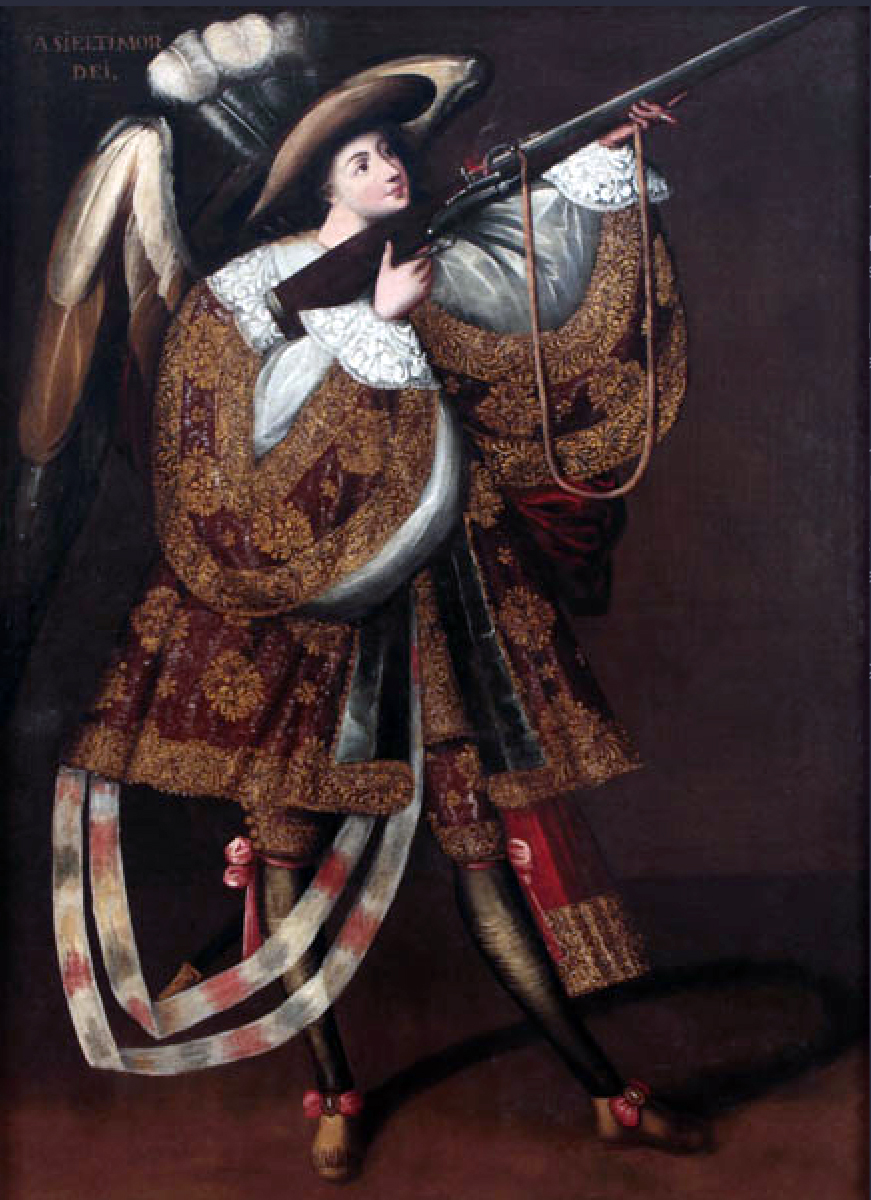
What three unexpected elements co-exist in the Master of Calamarca’s painting Archangel with Gun, Asiel Timor Dei?
Guns, angels, and fashion.
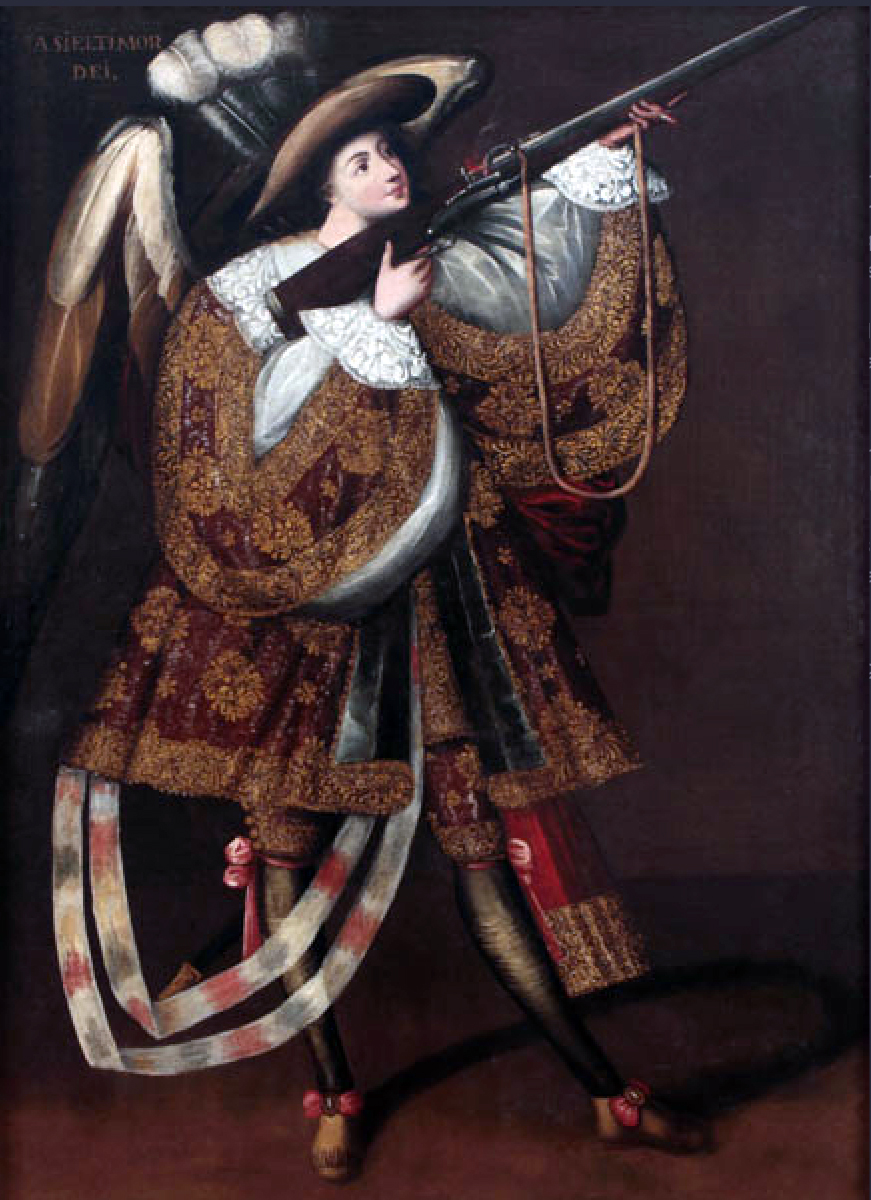
What was the viceroyalty where depictions of harquebus-carrying angels were produced?
Viceroyalty of Peru.
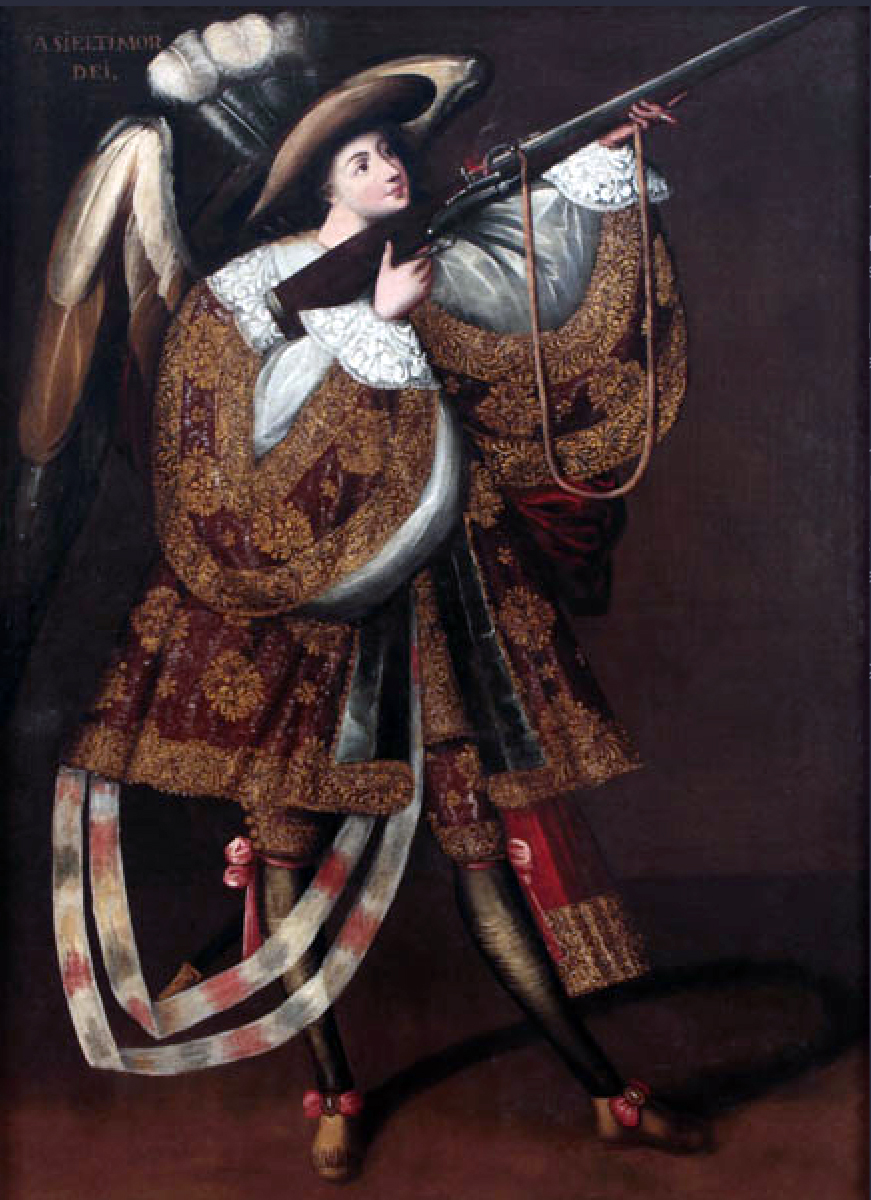
What does the Latin inscription of Archangel with Gun, Asiel Timor Dei indicate?
The name of the angel, Asiel, and a particular quality: Fears God.

What does the Our Lady of Cocharcas painting visually reference?
The Virgin’s association with Pachamama, the Andean mother earth through a mountain-like conical dress.
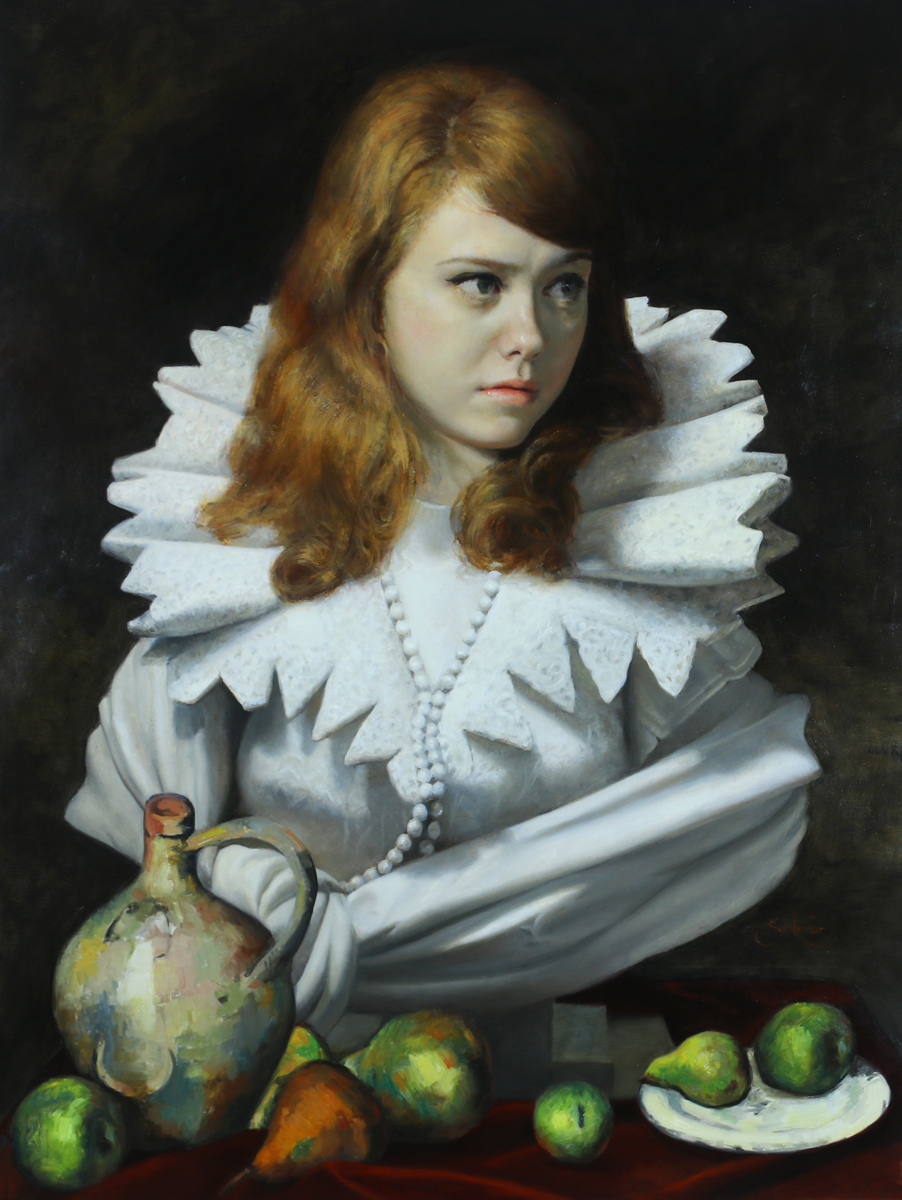
Define syncretism.
The blending or combining of different beliefs, cultures, or practices—especially in religion or philosophy—into a new, unified system.
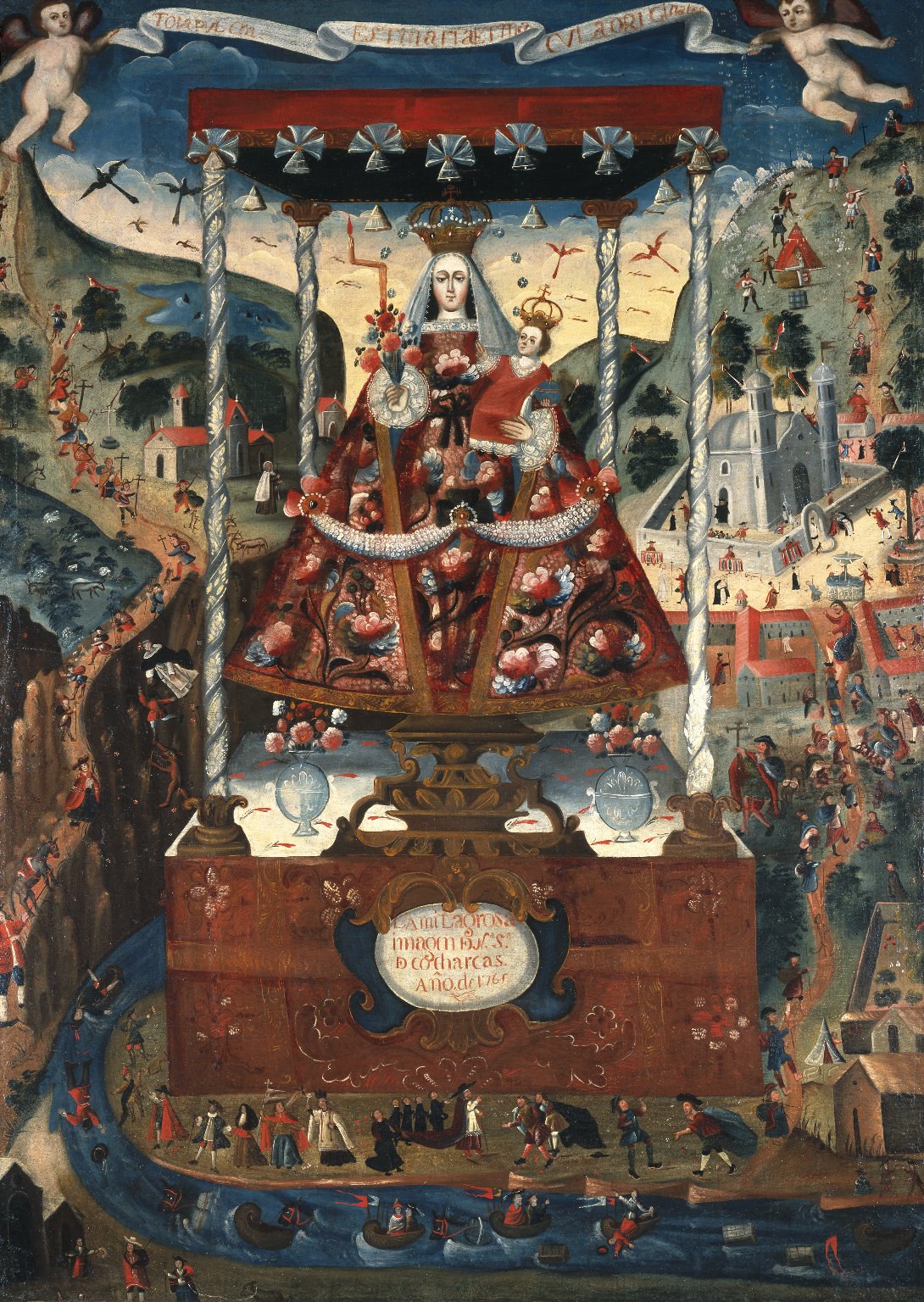
What is significant about the gold leaf appliqué in Our Lady of Cocharcas?
It draws the eye to the center of the composition, highlighting the Virgin’s resplendent vestments.
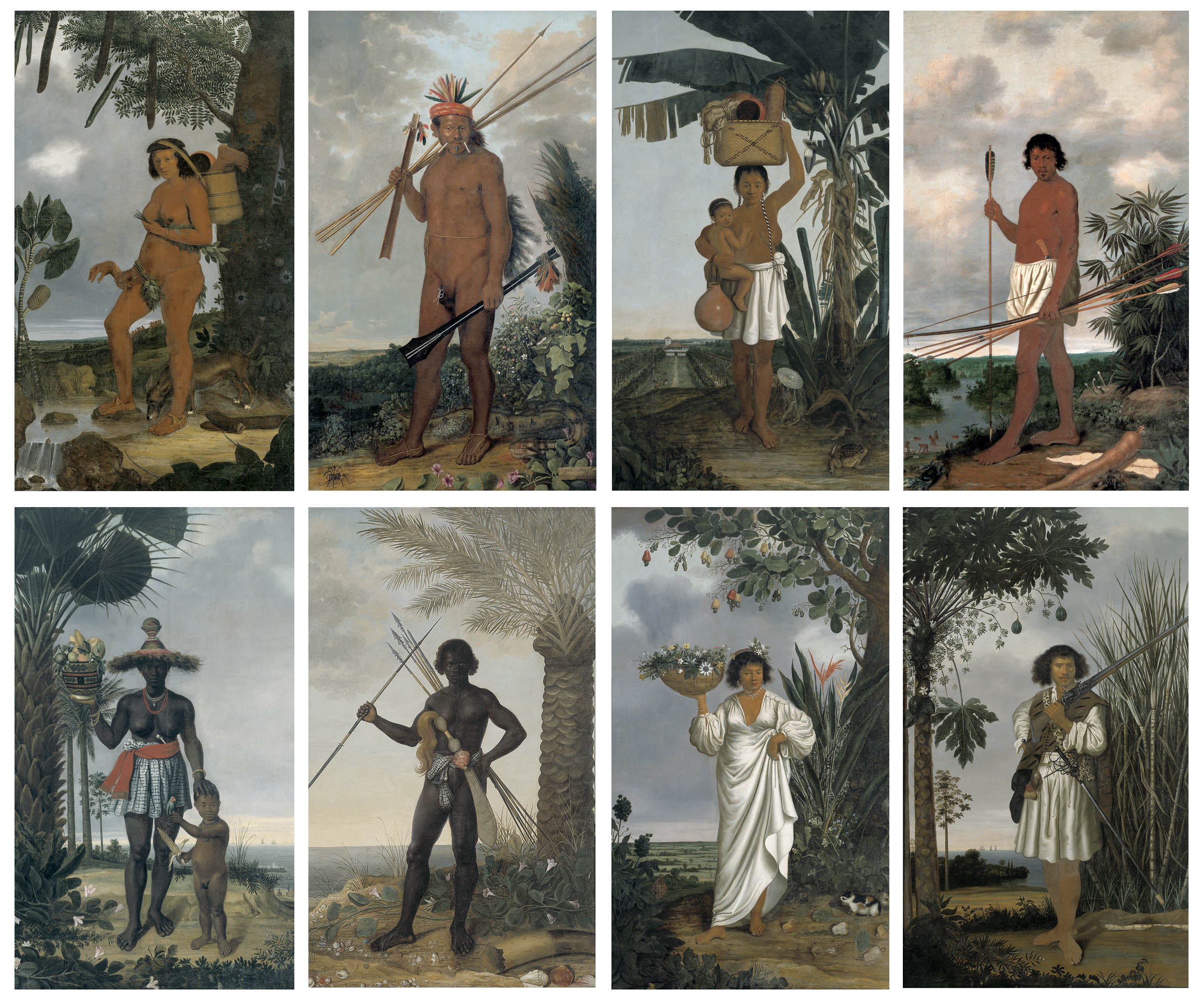
What was the purpose of Albert Eckhout’s Series of Eight Figures?
To document the diverse populations of the colony, including Indigenous peoples, Africans, and individuals of mixed heritage.
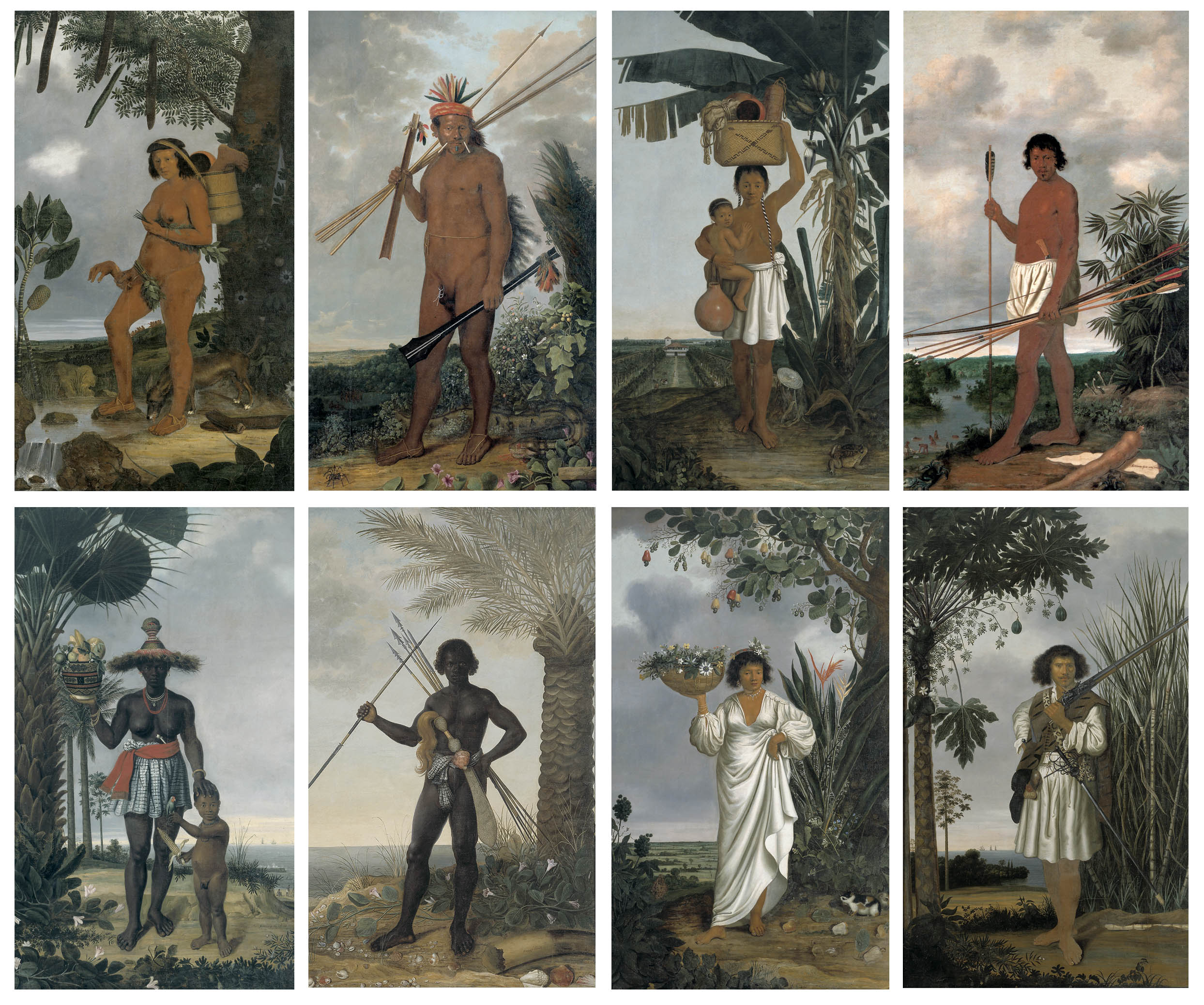
What is one way that Eckhout´s Series of Eight Figures reflects the colonial mindset of the era?
Categorizing and hierarchizing people based on race and ethnicity.
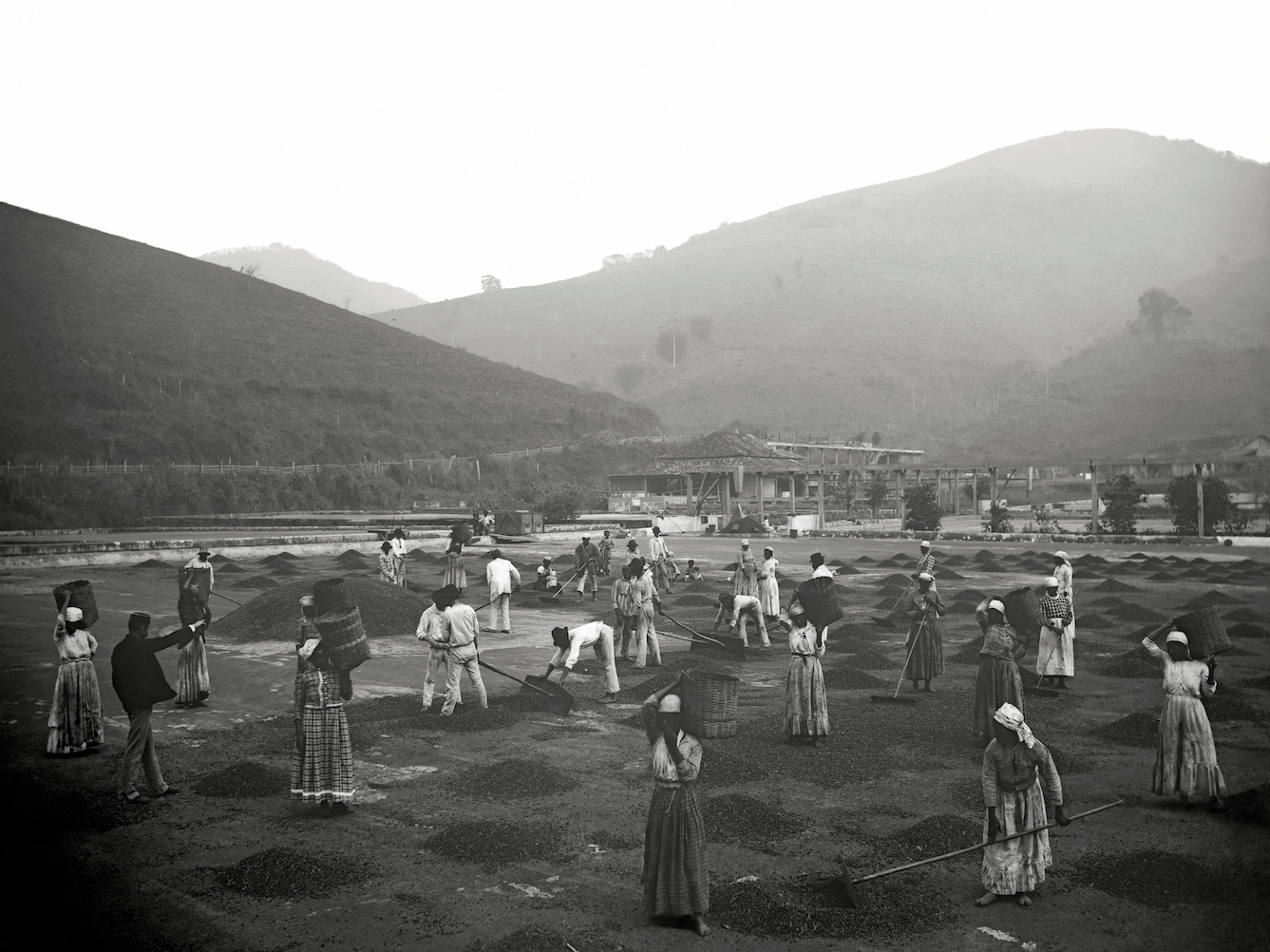
What is the effect of enslaved workers being arranged neatly in Marc Ferrez’s 1882 photograph?
It makes it seem peaceful, which creates a contrast with the real hardships of slavery hiding the violence.
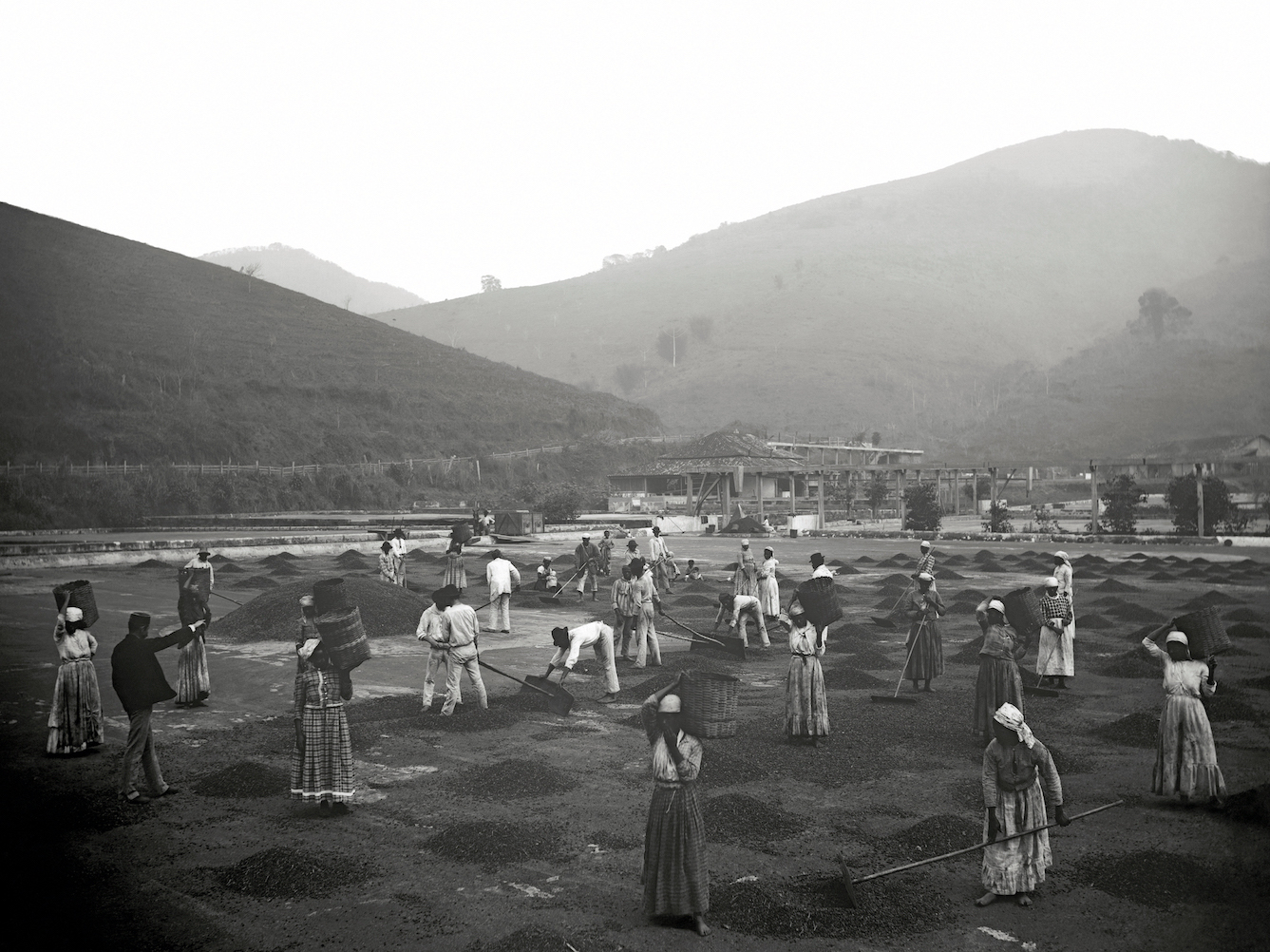
What is notable about the stares of the enslaved people in Marc Ferrez's photograph?
The stares remind us of their strength and humanity.
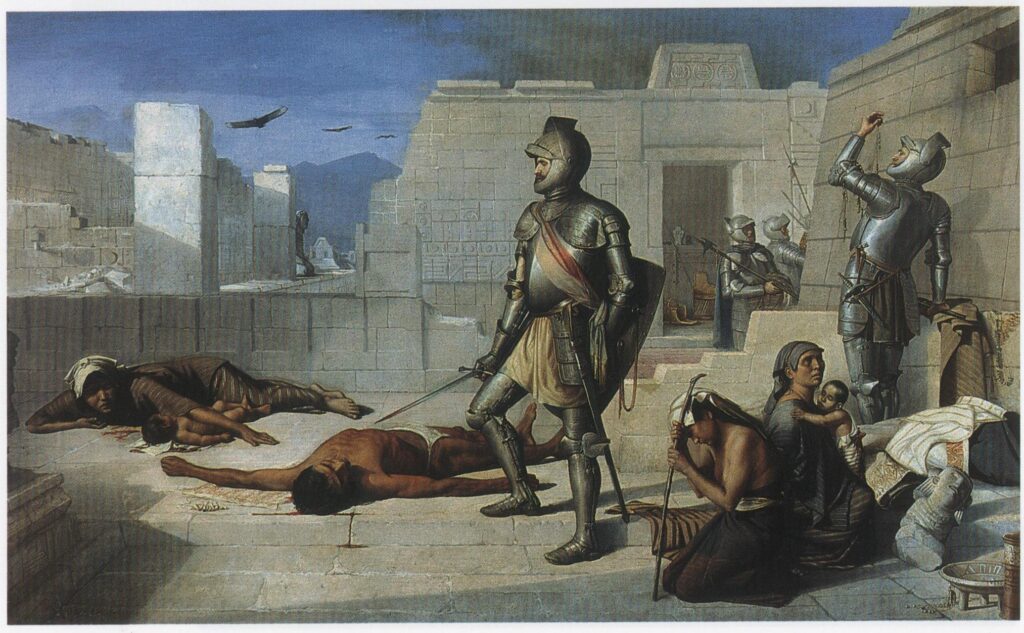
When did the Massacre of Cholula take place?
1519, during the Spanish conquest of Mexico.
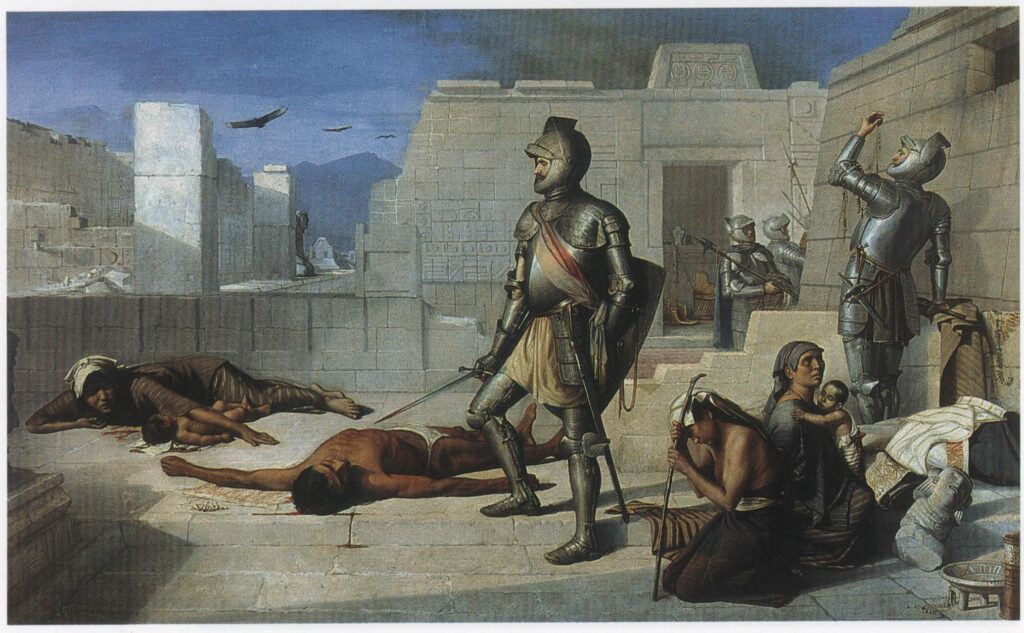
Why did Cortés attack the people of Cholula?
Cortés worried the leaders might fight against him, so he decided to attack.
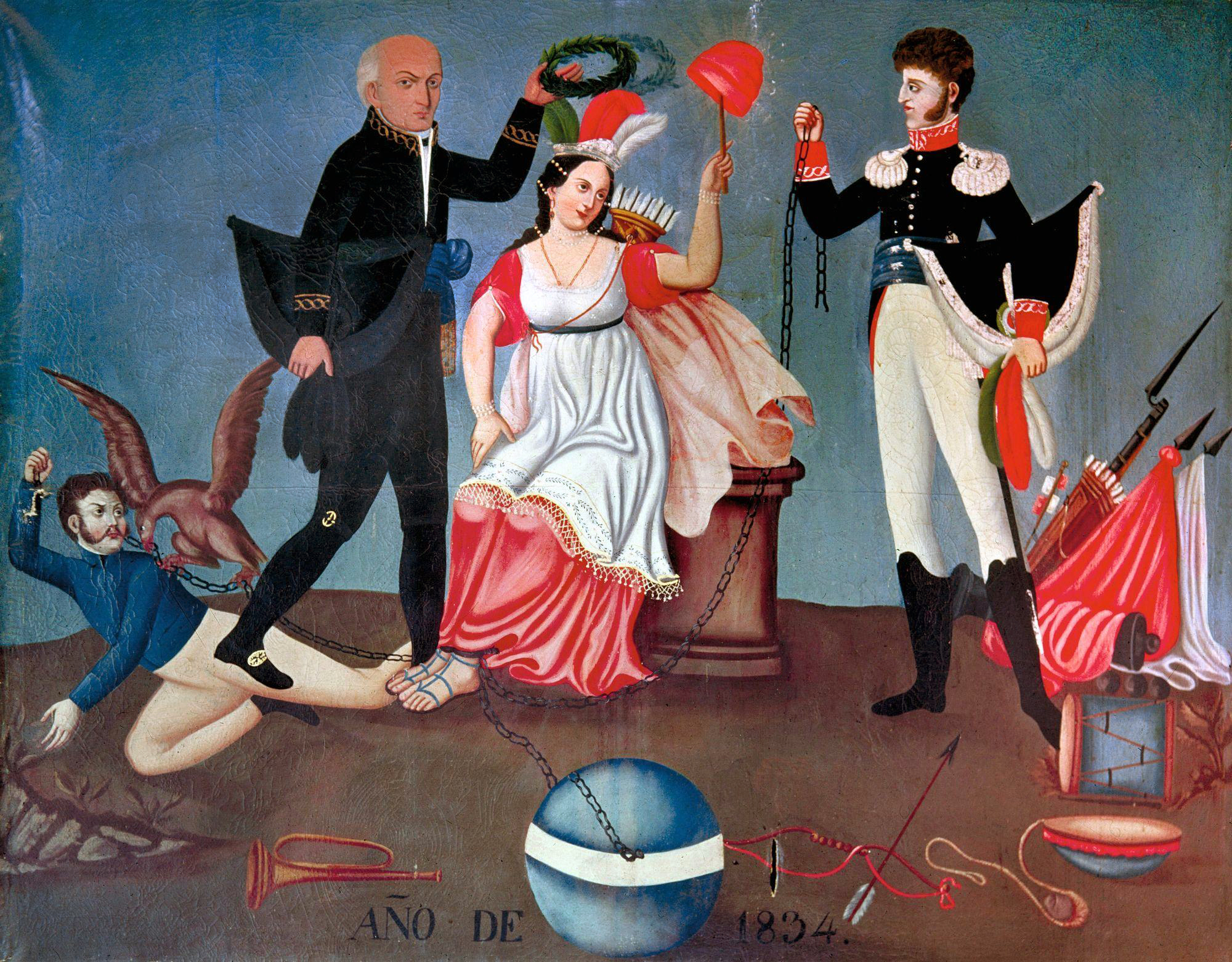
What does the figure of Independence wear in the painting that symbolizes Mexico’s independence?
Aztec-style feathers, showing pride in native heritage, and holds a Phrygian cap, a European symbol of freedom from the French Revolution.
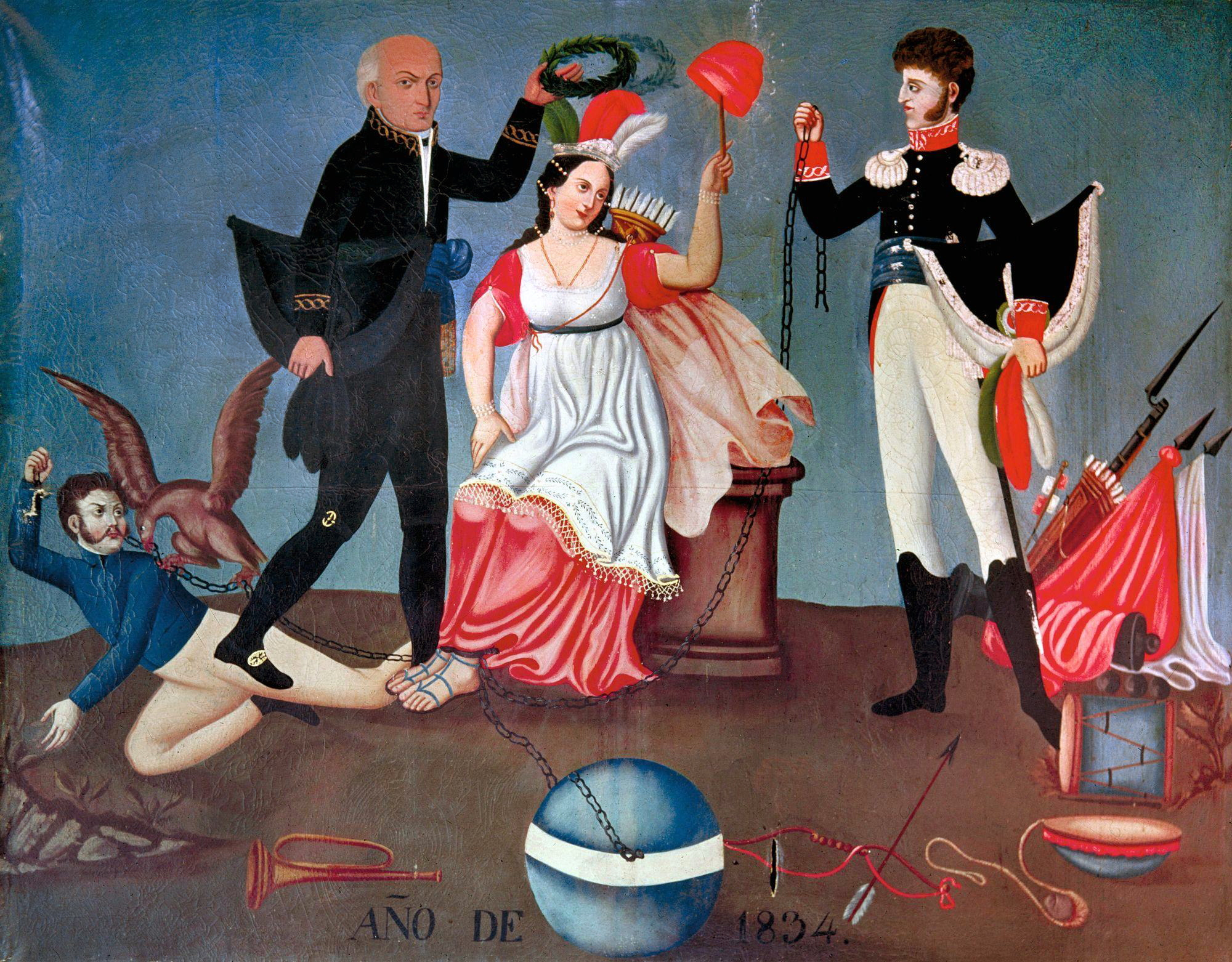
Who are the key leaders surrounding the central figure in the painting that symbolizes Mexico´s independence?
Miguel Hidalgo (left) and Agustín de Iturbide (right).
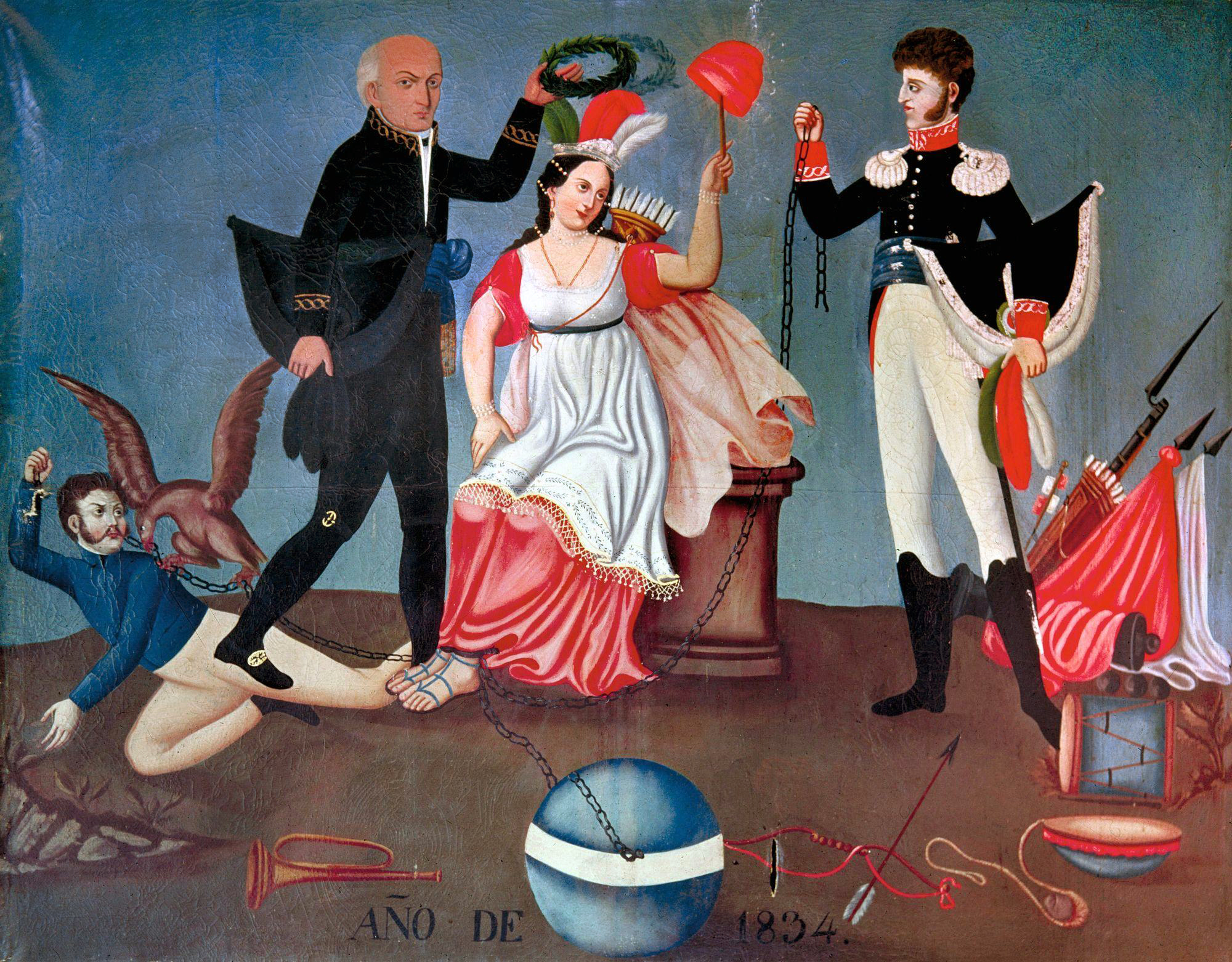
What does the eagle in the independence painting symbolize?
Mexico and the Aztecs.
In colonial art, why were enslaved individuals often depicted in Sunday clothes?
Colonial artists and patrons emphasized an idealized image of enslaved people in their 'Sunday best' clothing to promote a narrative that obscured the harsh realities of slavery and reinforce colonial power structures.
According to the colonial narrative, what mission does the depiction of the indigenous person resembling Christ criticize?
The 'civilizing mission' typically portrayed. This means the art questions the common colonial idea that they were savages needing Western civilization.
In the context of Mexico’s independence from Spain, what colonial practice is celebrated in independence artworks?
The end of colonial rule.
Why is religious symbolism and figures used in art?
To express devotion, sacrifice, and national identity.
What is the cultural significance of indigenous, local, and national identities being represented in art?
To reflect how colonial and post-colonial struggles shape these depictions.
What art forms are used for political messages?
Art has been used as a tool for political messages, challenging colonial narratives, expressing national pride, and promoting revolution.